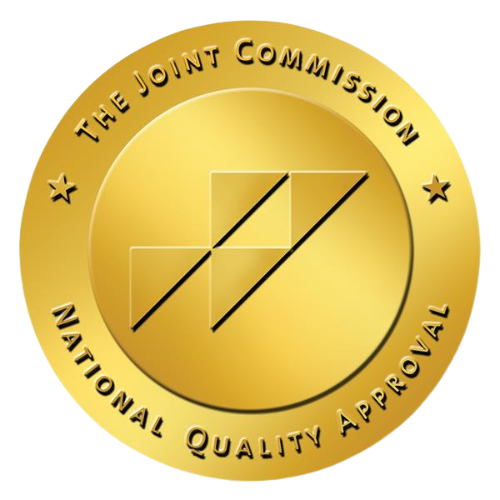
The realm of a medical traveler is vast with options. Here at Blu MedStaff, these are the healthcare professionals we work with.
Nursing
Local CNA (Certified Nursing Assistant)
CNAs assist nurses and other medical staff by providing direct personal care for patients. This entry-level position is quite demanding and best suited for someone who can multitask and works well with people under pressure.
Why be a traveling CNA? To put it simply, you can quickly gain medical experience while also being allowed the flexibility to travel and receive a higher pay rate.
CMA (Certified Medical Assistant)
CMAs assist physicians, nurses, and other medical staff by performing administrative and
clinical duties under the direction of a physician. Administrative duties may include scheduling appointments and maintaining medical records. Clinical duties may consist of preparing the treatment room for patient exams, recording patient medical history, and cleaning and sterilizing medical equipment, depending on certification levels.
Why be a traveling CMA? Like a traveling CNA, CMAs enjoy working with people and having the opportunity to provide patients with comfort. They receive similar benefits, including the possibility does daily stipends, bonuses, and tax breaks.
CST (Certified Surgical Technologist)
CST (Certified Surgical Technologist)
Surgical technologists support surgeries by preparing operating rooms and patients for surgery, helping doctors, and arranging equipment. They are also known as operating room technicians or surgical technicians.
Why be a traveling CST? Traveling allows CSTs to acquire multiple state licenses, meaning more chances to work with various teams, gain a more rounded view of the position, and expand the landscape for career growth.
LPN (Licensed Practical Nurse) & LVN (Licensed Vocational Nurse)
Both Licensed Practical and Vocational Nurses plan and manage patient care according to an individual’s needs. They interview patients and record their medical history and physical conditions like blood pressure or temperature while obtaining vital signs and often work under the supervision of an RN.
Why be a traveling LPN/LVN? These nurses are consistently in high demand, so traveling LPN/LVNs can work many variations of the job and make connections in any market.
RN (Registered Nurse)
Registered nurses handle a wide range of patient services under the direct instruction of doctors. Duties include providing preventative and primary care, educating patients about disease prevention, operating medical equipment, and administering medications. While most RNs provide direct patient care, specific job responsibilities and daily activities vary based on the needs of the healthcare team within which the nurse serves, the patient’s needs, and the patient demographics.
Why be a traveling RN? Like the other positions, traveling in this role provides more flexibility in scheduling and higher pay ranges. This position can experience burnout quickly due to increased daily expectations, so the opportunity to switch things up can be beneficial.
Long Term Care
Long-term care nurses perform routine procedures such as recording vital signs and administering medications and more specialized treatments for progressive and chronic conditions. These nurses also provide educational and emotional assistance to patients and family members.
Why be a traveling long-term care nurse? This is another role that demands a lot of emotional and mental resilience and therefore is in high demand anywhere. This means gaining the opportunity to build a deep, well-rounded knowledge base with a vast array of people while seeing the world.
Sterile Processing Technician
Sterile processing technicians are assigned duties performing decontamination, preparation, sterilization, and distribution of surgical instruments and medical equipment throughout the surgery center, utilizing infection control and safety practices during all process phases.
Why be a traveling SPT? Working as a traveling sterile processing tech can be an excellent opportunity to see new places, experience different cultures, and meet new people while building your skills in a rewarding career.
Allied Imaging
Broadly speaking, allied health encompasses jobs outside the traditional healthcare professions of doctors, nurses, pharmacists, and dentists. Unlike the required medical school to become a surgeon or physician, educational requirements for allied health can range from on-the-job training to graduate degrees. Some allied jobs are state-regulated and require special licensing or certifications, while others depend more on the specific employer.
Allied health includes a diverse range of professions, though most experts agree that the sector can be divided into three groups:
- primary care workers
- health promotion, administrative and rehabilitative workers
- diagnostic professionals (e.g., laboratory and MRI technicians).
Imaging technicians begin their jobs by adjusting and maintaining imaging equipment and reviewing orders from doctors on what areas of the body to image. They take patients’ medical histories, explain the procedure, answer questions, and then position the patient’s body in the scanner.
Why travel? Traveling in these jobs frees individuals from office politics while experiencing diverse cultures. They will constantly be learning about new clinical systems and new ways of life while being regularly challenged.
Rehab Therapy
Rehabilitation Therapists help people with a range of physical conditions recover effectively through various forms of physical exercise.
Why travel? This is another position that is open to developing a wealth of knowledge due to different techniques across the globe. Traveling PTs can improve their skill sets by exposure to various clinical environments, specialties, and niches.
Respiratory Therapy
Respiratory therapists interview and examine patients with breathing or cardiopulmonary disorders such as asthma or chronic obstructive pulmonary disease.
Why travel? A travel respiratory therapist position grants competitive pay, fantastic benefits packages, and free or low-cost housing. Plus, RTs can gain a new sense of adventure and independence by experiencing the world as few get to do.
Why We Do It
There are many perks to the traveling healthcare field— but it’s often the people who choose to do it that clearly define the distinction. These people are adventurous, thrive off stress, look for challenges, and celebrate curiosity. This is why Blu Medstaff works in this industry , and this is why we love working with these kindred spirits.









